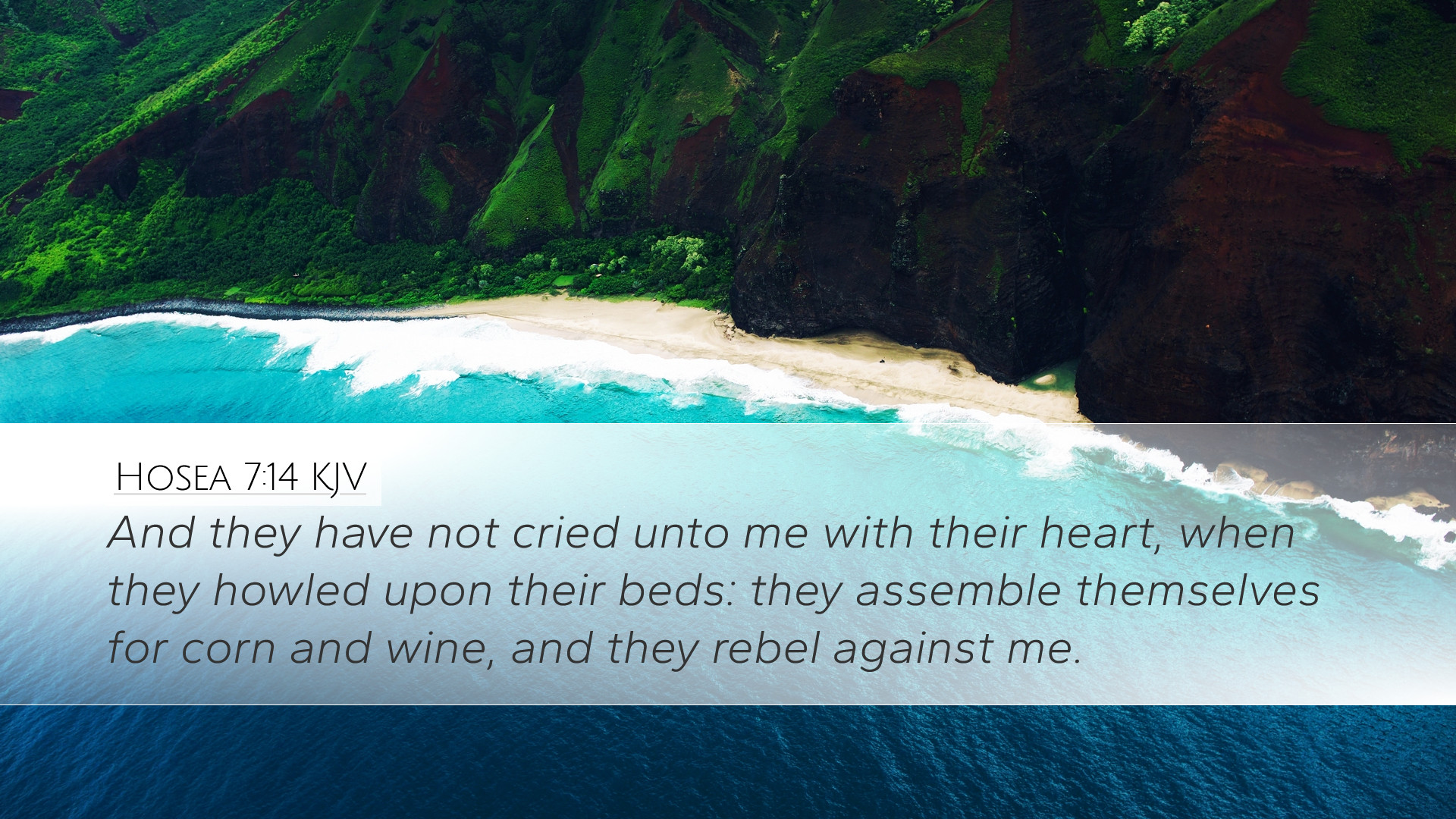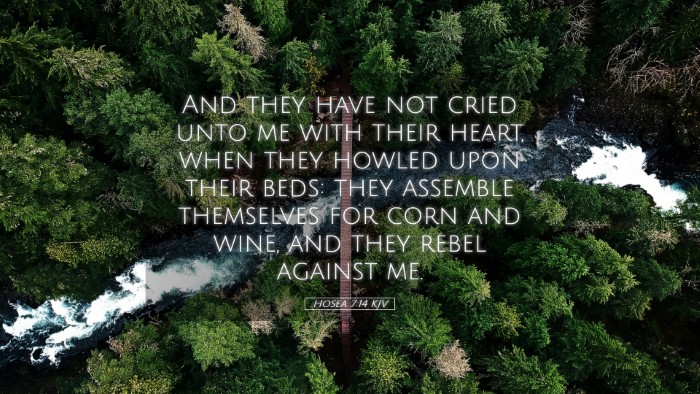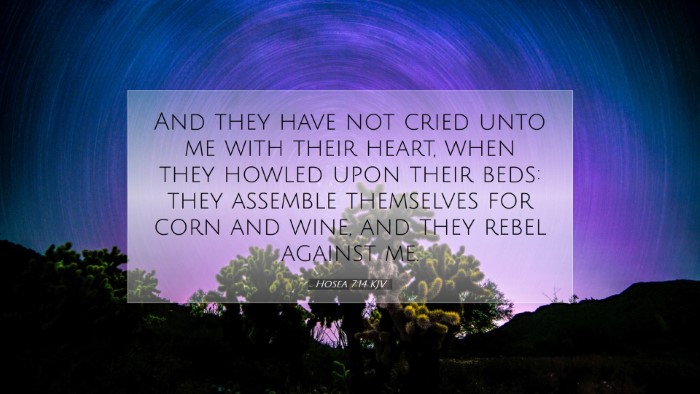Old Testament
Genesis Exodus Leviticus Numbers Deuteronomy Joshua Judges Ruth 1 Samuel 2 Samuel 1 Kings 2 Kings 1 Chronicles 2 Chronicles Ezra Nehemiah Esther Job Psalms Proverbs Ecclesiastes Song of Solomon Isaiah Jeremiah Lamentations Ezekiel Daniel Hosea Joel Amos Obadiah Jonah Micah Nahum Habakkuk Zephaniah Haggai Zechariah MalachiHosea 7:14
Hosea 7:14 KJV
And they have not cried unto me with their heart, when they howled upon their beds: they assemble themselves for corn and wine, and they rebel against me.
Hosea 7:14 Bible Commentary
Commentary on Hosea 7:14
Introduction: Hosea 7:14 captures a poignant moment in the prophetic discourse of Hosea, emphasizing the insincerity and spiritual blindness of Israel. The verse reads:
“And they have not cried unto me with their hearts, when they howled upon their beds: they assemble themselves for corn and wine, and they rebel against me.”
Context and Background
The Book of Hosea is a profound narrative, encapsulating God's covenant love amidst Israel's unfaithfulness. Hosea, as a prophet, meticulously unpacks the relational dynamics between God and Israel, using vivid imagery and emotive language to underline the consequences of spiritual adultery.
Verse Analysis
The verse highlights two main themes: the insincerity of Israel's repentance and the futility of their worship.
Insincerity in Repentance
Matthew Henry states that Israel's cries are superficial, lacking genuine contrition. Their howling on beds indicates a form of distress; however, it is devoid of true heartfelt cries for redemption. Henry notes:
“They grieve over their misfortunes but do not truly seek God's restoration.”
Rebellion against God
Albert Barnes remarks that the assembly for corn and wine suggests a focus on material blessings rather than spiritual revival. This indicates that the people are more interested in satisfying their physical needs than in returning to God in a sincere manner.
Examination of Their Worship
Adam Clarke elaborates that this assembly for corn and wine symbolizes Israel's prioritization of agricultural prosperity over divine relationship. The heart of worship, which should be directed towards God, has been diverted to the blessings themselves. Clarke asserts:
“Their festivities are devoid of genuine worship; instead, they reflect a greedy appetite for material gain.”
Theological Implications
This verse challenges us to consider the state of our own hearts in worship. Are our cries genuine and directed towards God, or do we merely howl out of discomfort or need? Highlighting the disconnect between physical survival and spiritual depth, Hosea 7:14 invites profound reflection.
Heartfelt Worship vs. Ritual
Henry reminds readers that God desires more than mere ritualistic observance. The essence of worship lies in a heart aligned with God's will, crying out for His presence. This emphasizes the importance of internal transformation over external show.
Repentance
Both Barnes and Clarke suggest that true repentance involves more than admission of sin—it requires a deep, heartfelt cry for mercy and restoration. Clarke states:
“Repentance must come from the heart, not merely from the lips.”
Lessons for Today
The insights gleaned from this verse are timeless and resonate with contemporary believers. They serve as a stark reminder that God seeks authenticity over performance in our spiritual lives.
Encouragement for Pastors and Leaders
Pastors are called to guide their congregations toward genuine worship. This includes fostering an environment where congregants can cry out to God from their hearts, unencumbered by pretense. Henry admonishes:
“Let not our worship be merely a formality but a heartfelt engagement with the divine.”
Application for Individual Believers
For individual believers, Hosea 7:14 prompts self-examination. Are we coming to God with our hearts fully engaged, or are we simply presenting our needs in a transactional manner? Public worship should reflect an inward reality that yearns for God’s presence.
Conclusion
In summary, Hosea 7:14 serves as a clarion call to authenticity in our relationship with God. As we navigate our spiritual journeys, may we heed the warning of insincerity and strive to approach our Creator with heartfelt cries for mercy, inviting His transformative power into our lives.
Final Reflection: The prophetic words of Hosea remain a vital source of instruction, guiding believers toward a deeper understanding of God's desire for genuine connection and repentance.


